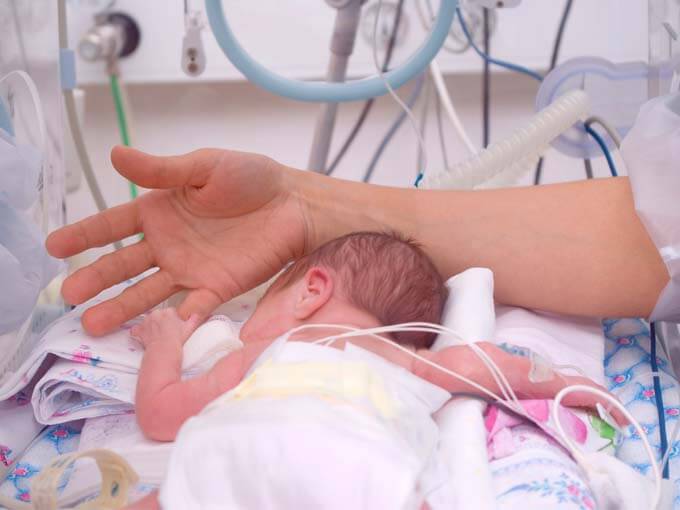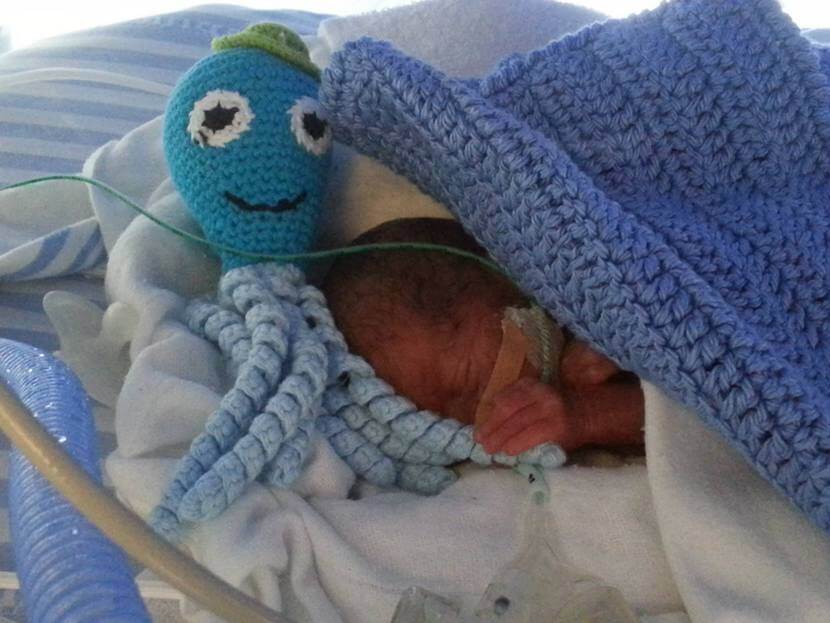The Importance of Human Warmth for Babies in Intensive Care

Premature babies are the most delicate and fragile human beings. These tiny little individuals are born ahead of time, and need intensive care to grow and remain healthy.
However, this treatment requires that premature newborns be separated from their parents. As a result, they spend many hours alone in an incubator.
When babies are born prematurely, they need constant medical attention in order for their bodies to develop.
However, there is an area that often goes unattended, though it’s just as important as the continuous medical attention. We’re referring to the child’s emotional health.
While babies are growing inside their mother’s belly, they have a number of physical needs in order to be healthy. But babies’ emotional health is important as well.

Parents of premature babies often want nothing more than to spend 24 hours a day with their tiny loved one. However, for a number of reasons, that’s not always possible.
For example, there are times of rest when they won’t be able to stay in the neonatal unit. They may also have other children to tend to.
There are a number of factors that are beyond the parents’ control that prevent them from accompanying their baby full-time.
Nevertheless, satisfying this emotional need is essential in order for the baby to grow and recover strength and health.
“Look at how small I am and imagine how big I can grow to be”
-Anonymous-
Babies can never receive too much love
Premature babies need a great amount of love. And in those moments when their parents can’t be close, they still need human warmth to calm and comfort them.
Thankfully, there are people who have become aware of this great need. More and more hospitals are creating programs where volunteers can help out when parents are unavailable.
These loving volunteers provide human warmth and affection to premature babies while their parents cannot.
One great example is Saint Boniface Hospital in Winnipeg, Manitoba (Canada), which has created the Baby Cuddler program. The program consists of altruistic volunteers who spend hours cradling these delicate babies.
Their time and dedication provides the human touch that these little beings so need in order to stay strong.
From the moment they’re born, babies need love. And these volunteers want to contribute to the well-being of these little ones during such a delicate stage.

Sometimes, the function of these volunteers is more important than ever
You may be asking yourselves where the parents of these little children are. In most cases, parents simply need short breaks to rest or care for older siblings.
However, there are many unfortunate cases when the mother is unavailable because of illness or death. She may also be receiving medical attention due to complications at birth, or even be suffering mental illness.
And in many of these same cases, the father is absent or unknown. There are many circumstances that can lead to a great need for extra volunteers.
Babies need skin-to-skin human contact from the moment they are born. In the case of premature babies, this need is much greater.
Whatever the reason may be, the time that these babies should have spent inside their mothers’ womb was cut short.
Therefore, human touches and embraces are necessary to provide them with safety, physical comfort and emotional support.
At Saint Boniface Hospital, it’s easy to observe the difference among those babies who have received the loving attention of the volunteers. They have better sleeping habits, and evolve better than babies who haven’t received the same level of attention.
When babies are left alone for long hours in intensive care without human touch, the struggle is greater.
Of course, it’s best when this human warmth comes from the baby’s own mother and father. But when that’s not possible, these little ones should not be left alone.
Volunteers like those at Saint Boniface Hospital carry out a tremendous mission in the lives of premature babies.
Can you imagine what a difference it would make if every hospital in the world had a similar program?
Premature babies are the most delicate and fragile human beings. These tiny little individuals are born ahead of time, and need intensive care to grow and remain healthy.
However, this treatment requires that premature newborns be separated from their parents. As a result, they spend many hours alone in an incubator.
When babies are born prematurely, they need constant medical attention in order for their bodies to develop.
However, there is an area that often goes unattended, though it’s just as important as the continuous medical attention. We’re referring to the child’s emotional health.
While babies are growing inside their mother’s belly, they have a number of physical needs in order to be healthy. But babies’ emotional health is important as well.

Parents of premature babies often want nothing more than to spend 24 hours a day with their tiny loved one. However, for a number of reasons, that’s not always possible.
For example, there are times of rest when they won’t be able to stay in the neonatal unit. They may also have other children to tend to.
There are a number of factors that are beyond the parents’ control that prevent them from accompanying their baby full-time.
Nevertheless, satisfying this emotional need is essential in order for the baby to grow and recover strength and health.
“Look at how small I am and imagine how big I can grow to be”
-Anonymous-
Babies can never receive too much love
Premature babies need a great amount of love. And in those moments when their parents can’t be close, they still need human warmth to calm and comfort them.
Thankfully, there are people who have become aware of this great need. More and more hospitals are creating programs where volunteers can help out when parents are unavailable.
These loving volunteers provide human warmth and affection to premature babies while their parents cannot.
One great example is Saint Boniface Hospital in Winnipeg, Manitoba (Canada), which has created the Baby Cuddler program. The program consists of altruistic volunteers who spend hours cradling these delicate babies.
Their time and dedication provides the human touch that these little beings so need in order to stay strong.
From the moment they’re born, babies need love. And these volunteers want to contribute to the well-being of these little ones during such a delicate stage.

Sometimes, the function of these volunteers is more important than ever
You may be asking yourselves where the parents of these little children are. In most cases, parents simply need short breaks to rest or care for older siblings.
However, there are many unfortunate cases when the mother is unavailable because of illness or death. She may also be receiving medical attention due to complications at birth, or even be suffering mental illness.
And in many of these same cases, the father is absent or unknown. There are many circumstances that can lead to a great need for extra volunteers.
Babies need skin-to-skin human contact from the moment they are born. In the case of premature babies, this need is much greater.
Whatever the reason may be, the time that these babies should have spent inside their mothers’ womb was cut short.
Therefore, human touches and embraces are necessary to provide them with safety, physical comfort and emotional support.
At Saint Boniface Hospital, it’s easy to observe the difference among those babies who have received the loving attention of the volunteers. They have better sleeping habits, and evolve better than babies who haven’t received the same level of attention.
When babies are left alone for long hours in intensive care without human touch, the struggle is greater.
Of course, it’s best when this human warmth comes from the baby’s own mother and father. But when that’s not possible, these little ones should not be left alone.
Volunteers like those at Saint Boniface Hospital carry out a tremendous mission in the lives of premature babies.
Can you imagine what a difference it would make if every hospital in the world had a similar program?
All cited sources were thoroughly reviewed by our team to ensure their quality, reliability, currency, and validity. The bibliography of this article was considered reliable and of academic or scientific accuracy.
- Smith, J.R. (2012). Comforting touch in the very preterm hospitalized infant: An integrative review. Advances in Neonatal Care, 12(6), 349-365. Review of various interventions involving touch used in very preterm infants hospitalized in the Neonatal Intensive Care Unit.
- Morelius, E., Ortenstrand, A., Theodorsson, E., & Frostell, A. (2015). A randomised trial of continuous skin-to-skin contact after preterm birth and the effects on salivary cortisol, parental stress, depression, and breastfeeding. Early Human Development, 91(1), 63-70. Study examining the effect of continuous skin-to-skin contact on salivary cortisol, parental stress, parental depression, and breastfeeding.
This text is provided for informational purposes only and does not replace consultation with a professional. If in doubt, consult your specialist.








